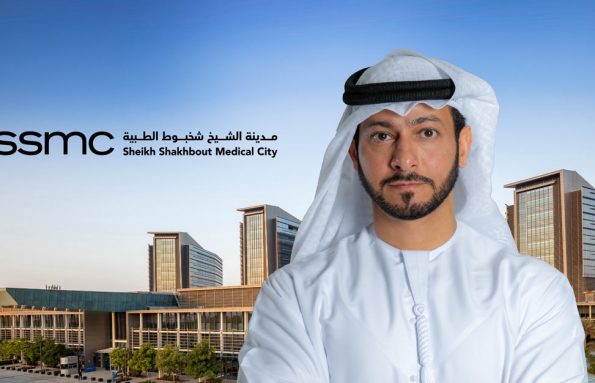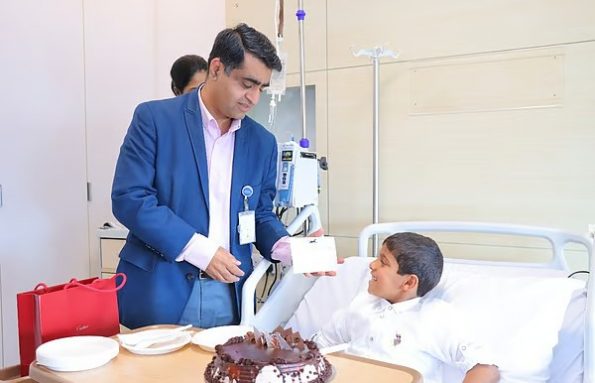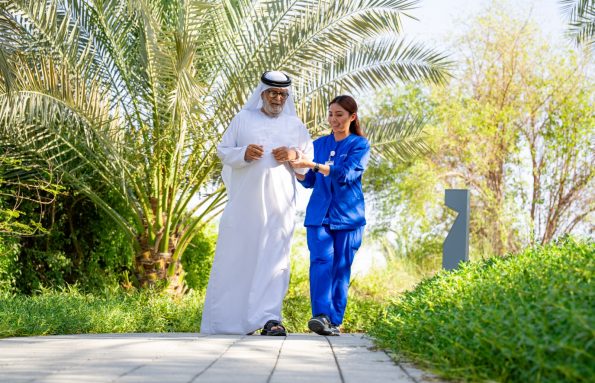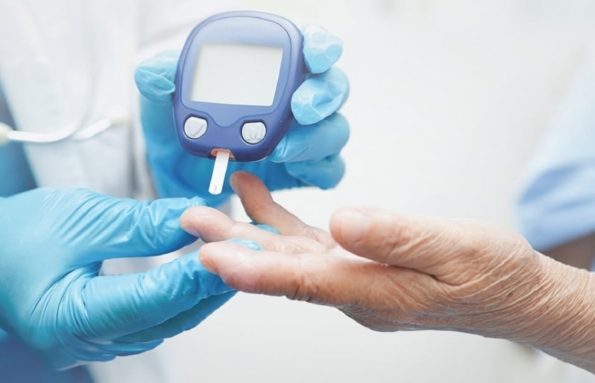Multi-disciplinary clinic in Abu Dhabi focuses on addressing needs of adolescents
Abu Dhabi: Parents should listen to and try to relate to teenagers as they have their own unique perspectives. It is vital to care for them compassionately at their critically-important stage of development, said Dr Philip Robert Fischer, consultant — Paediatric and Adolescent Medicine and chairman of the Division at Sheikh Shakhbout Medical City in Abu Dhabi. Dr Fischer was speaking to Gulf News on the occasion of International Youth Day, which is observed on August 12 every year.
Dr Fischer shared his views on how to care for teenagers and children, the challenges faced by the Paediatric and Adolescent Medicine Division at Sheikh Shakhbout Medical City and the food choices of the youth. Following are excerpts.
GULF NEWS: What are the most prominent health challenges that adolescents face today? DR PHILIP ROBERT FISCHER: These are the main challenges that one needs to tackle today, so far as the health and wellbeing of youth are concerned: 1) Nutrition: They are either overweight or suffer from eating disorders, they are under-nourished and lack in vital nutrients such as iron and Vitamin D. 2) Puberty: Adolescents need to adjust to the changes in their bodies. 3) Tackling chronic pain and chronic fatigue; and 4) Fighting anxiety and depression.
Can you tell us why it was important to introduce an adolescent-centric clinic in the UAE? Teens have their special needs. They don’t necessarily fit in with the younger children, who are typically taken care of by the paediatricians, and they also don’t fall in the category of adults. They often have questions and concerns about growth, nutrition, mood-swings and medical issues. By establishing a multi-disciplinary team-based clinic focused specifically on adolescents, we hope to help them grow and develop in healthy ways as they enter adult life. How is the adolescent clinic different from average paediatric services? We focus on challenges faced by teens as they go through changes in adolescents — diet, nutrition, activity, puberty. We are ready to deal with their specific dermatological issues as well and also with chronic fatigue and chronic pain that, sadly, affect up to 30 per cent of teenagers at some point of time.
How is caring for teenagers different from caring for children? It is important to listen to and relate to teenagers as they come from their own unique perspectives. It is vital to care for them compassionately at their critically important stage of development.
What are the warning signs and symptoms that parents should watch out for in adolescents and teenagers? Anything and everything that interrupts their normal daily lives! As part of International Youth Day this year, the theme stresses the need for youth to make more informed decisions on food choices. What is your advice to teenagers and parents to ensure they are making healthy choices? Good food choices are essential. On a daily basis, teenagers have to take decisions on what to eat and how much to eat. They should thoughtfully choose their meals and they should choose to eat at regular intervals. Along with the right diet, daily exercise is also very important. Weight should be kept at a normal. Too many teens are eating for comfort — and not for nutrition — and thereby gaining too much weight. Teens should take in enough iron (from meat and/or dark green leafy vegetables) to support their growing bodies. Also, if they are not spending enough time outdoors, they should consider taking Vitamin D supplements.
Source: Gulf News 





